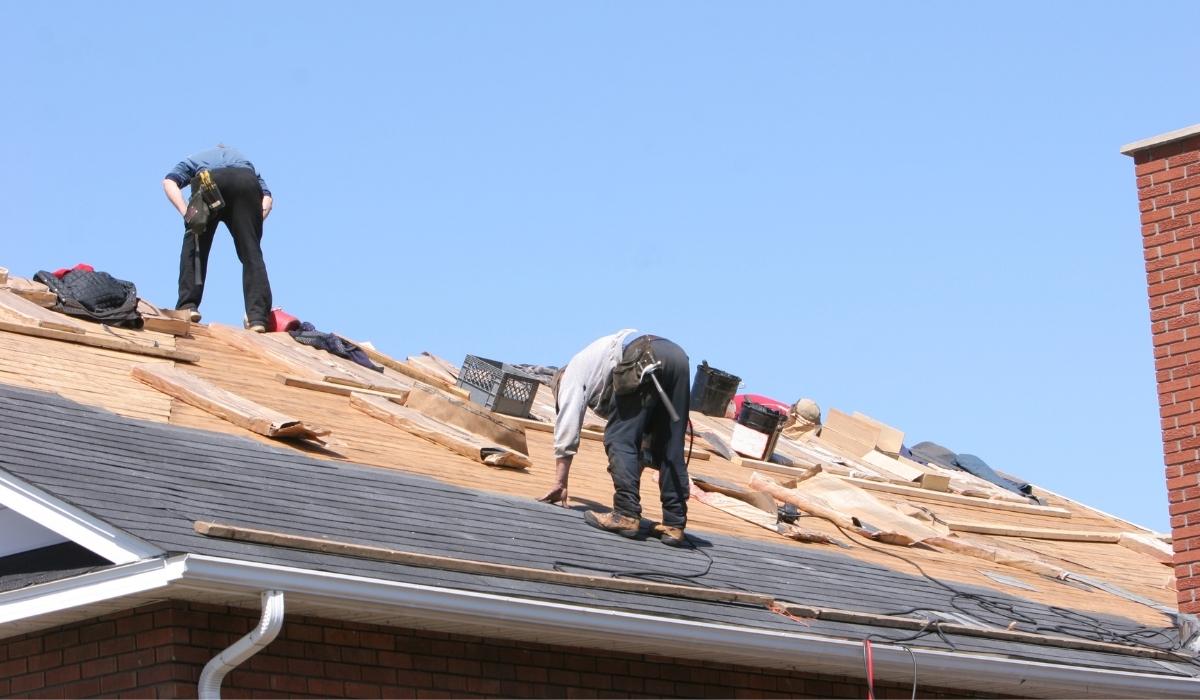Reviews vs. Reality: How to Choose the Right Roof Installation & Repair Contractor
When your roof needs attention—whether it’s a minor repair or a full replacement—choosing the right contractor is everything.
But with so many roofing companies out there, all promising top-tier service, it’s easy to get overwhelmed.
Should you go with the contractor that has the most 5-star reviews? The one with the flashy website? Or the one your neighbor used?
Let’s talk about what really matters when selecting a roof installation and roof repair contractor.
In this guide, we’ll explore the difference between online reviews and real-world reliability, what credentials to look for, how to protect your home from roofing scams, and how to find a team that’ll treat your roof like it’s their own.
The Truth About Online Reviews
We all read reviews. In fact, studies show over 90% of consumers check online feedback before making a major decision like hiring a roofer. But here’s the thing: not all reviews reflect reality.
- Paid or incentivized reviews can make a subpar contractor look like a rockstar.
- Fake negative reviews can hurt genuinely good local companies.
- Some reviews are outdated and don’t reflect the contractor’s current team or service quality.
What to Do Instead:
- Don’t just look at the star rating. Read the comments—especially the 3- and 4-star reviews. They’re usually the most honest.
- Check how the contractor responds to negative feedback. Do they take accountability or get defensive?
- Look for reviews that mention long-term performance: Did the repair or installation hold up after 6 months or a year?
What Really Matters in a Roofing Contractor

Beyond online reputation, there are critical factors that reveal whether a roofing company is reliable, skilled, and safe to work with.
1. Licensing and Insurance
A credible contractor will be:
- Licensed in your state (check with your local licensing board).
- Insured, including general liability and workers’ compensation.
- Bonded, which offers added financial protection in case the contractor fails to meet the terms of the contract.
2. Local Experience
Choose a roof installation near me, roof repair company near me and established in your area. Why?
- They know your region’s weather patterns, which impact roofing material and design.
- They’re easier to reach if issues arise after installation.
- Fly-by-night contractors often vanish after the job is done (or poorly done).
3. Transparent Estimates
A trustworthy contractor will provide:
- A written estimate outlining materials, labor, timeline, and warranty terms.
- A clear explanation of the scope of work, without pushing unnecessary upgrades.
Red Flags to Watch Out For
Unfortunately, the roofing industry is ripe with scammers—especially after storms. Here’s how to spot shady contractors:
- They show up uninvited after a storm and pressure you to sign immediately.
- They ask for full payment upfront or in cash only.
- They offer a “today only” deal or claim your roof has damage you can’t verify.
- They avoid written contracts or give vague answers.
If you feel uncomfortable, trust your gut. A legitimate contractor won’t rush or pressure you.
Questions to Ask Before You Hire
Want to get beyond the surface? Ask the following smart homeowner questions:
- Are you licensed, bonded, and insured? (Ask to see the proof.)
- Can you provide local references?
- What’s your timeline for completion?
- Who will be on the job site—employees or subcontractors?
- What type of warranty do you offer?
- Do you handle permits and cleanup?
A great contractor will appreciate your diligence and answer with confidence.
Comparing Quotes the Right Way
Don’t just look at the bottom line when comparing estimates. Instead, focus on:
- Material quality: Are they using budget shingles or long-lasting options?
- Installation process: Are they replacing flashing, underlayment, etc.?
- Warranty coverage: Labor warranties vary widely and can be just as important as material warranties.
- Timeline and manpower: A low bid might mean cutting corners on crew size or project length.
Pro Tip: The cheapest bid often costs more in the long run due to poor workmanship or weak materials.
Real-World Signs of a Reliable Contractor
Sometimes the small things speak volumes:
- They show up on time for the estimate.
- Their truck is clean, and their crew looks professional.
- They answer your questions without dodging or sales pressure.
- They provide a detailed, written proposal, not a scribbled number on a business card.
- They don’t start work until permits are approved and materials are ready.
These signals show that a contractor values your time, your money, and your property.
Roof Repairs vs. Roof Replacement: What’s the Contractor Saying?
A trustworthy contractor will evaluate your roof honestly and tell you whether you need a full replacement or just a repair.
- If your roof is under 15 years old and only has localized damage, a repair might be enough.
- If it’s 20+ years old, curling shingles, and signs of leaks, replacement might be smarter.
Be cautious if a contractor pushes for a new roof without thorough inspection or explanation.
What Happens After the Job?
Follow-up is just as important as installation.
- Does the contractor offer a warranty walk-through?
- Will they inspect the roof again after the first heavy rain?
- Can you call them if issues pop up in the future?
Many bad experiences happen after the job is done. A great contractor stays responsive long after the invoice is paid.
Why Reputation and Reality Must Align
It’s not “reviews vs. reality”—it’s reviews AND reality. You want a contractor who:
- Has a strong online presence with genuine feedback
- Follows up with real-world professionalism
- Offers high-quality materials, fair pricing, and clear communication
When reputation and reality match, you’ve found your roofing partner.
Call to Action: Work With Contractors You Can Trust
At the end of the day, your roof protects your home, family, and investment. So don’t gamble. Do your research. Ask the hard questions.
And when you’re ready, work with a licensed, insured roofing contractor who values integrity, craftsmanship, and long-term service.
If you’re looking for a local team that consistently delivers on those values, Eagle Watch Roofing is your trusted partner.
With years of proven experience, glowing reviews, and a strong commitment to quality, Eagle Watch Roofing ensures your project is done right—the first time.
Contact Eagle Watch Roofing today for a free, no-pressure estimate and discover why so many homeowners rely on us for fast, reliable, and professional roofing services.
FAQs
Should I always choose the contractor with the most 5-star reviews?
Not necessarily. While 5-star reviews are a helpful signal, they don’t always reflect the full picture. Some great local contractors may have fewer reviews simply because they focus more on quality work than marketing. Always check their licensing, warranties, and how well they communicate during your initial interactions. A few genuine reviews backed by real credentials often mean more than hundreds of vague ones.
How do I know if a contractor is licensed?
You can ask the contractor directly for their license number, which should be readily available and verifiable. Most states have a licensing board website where you can search their name or number to confirm status and standing. A licensed contractor meets local laws and professional standards. If they hesitate to share this info, consider it a red flag.
Can I trust a roofing company that uses subcontractors?
It depends on how they manage and vet their subcontractors. Ask if the subcontractors are insured, experienced, and overseen directly by the main company. A trustworthy roofing contractor will stand behind the work, regardless of who installs the roof. If they dodge questions about their crew, it’s worth exploring other options.
How long should a typical roof installation take?
Most standard residential roof installations take 1–3 days under normal weather conditions. Factors like roof size, material type, and project complexity can affect this timeline. A good contractor will give you a clear schedule upfront and communicate promptly about any delays. Don’t be afraid to ask how they handle weather setbacks or unexpected issues.
Is it normal for a contractor to ask for a deposit?
Yes, it’s common practice for contractors to request a deposit—typically between 10–30% of the total project cost. This helps cover initial material purchases and scheduling. However, avoid paying the full amount upfront. Make sure your payment terms are outlined in a written contract with clear milestones tied to work progress.
What happens if my roof has issues after installation?
If your contractor offers a workmanship warranty, they should return to fix any problems covered under that warranty. This typically includes things like leaks or improperly installed flashing. Make sure you get warranty terms in writing before the project begins, including duration and what is (and isn’t) covered. A reliable contractor won’t disappear after the job is done.
How can I compare roofing materials?
Ask your contractor to show you physical samples and explain the pros and cons of each option. Compare durability, energy efficiency, warranties, and how the materials perform in your local climate. Higher-end materials may cost more but can offer better long-term value. Don’t hesitate to do a little independent research or request product brochures.
Do I need a permit for roof replacement?
In most areas, yes. A roofing permit ensures the work complies with local building codes and safety standards. A reputable contractor will take care of securing the proper permits as part of the project. If a contractor tells you a permit isn’t necessary or asks you to pull it yourself, proceed with caution—they may be cutting corners.


